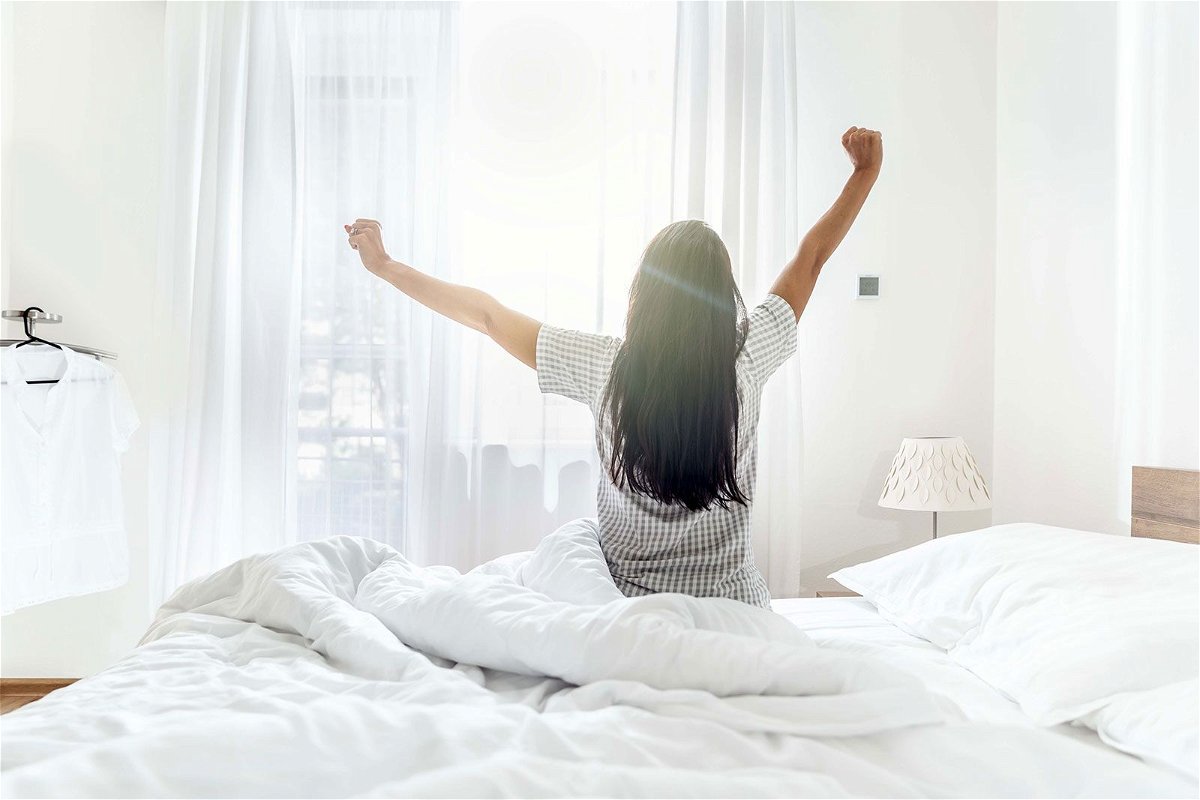Feeling older than you are? It could be how you sleep

By Sandee LaMotte, CNN
(CNN) — Not getting enough sleep may cause you to feel five to 10 years older than you really are, according to two new studies.
“Sleep plays a causal role in how old individuals feel,” Leonie Balter, a sleep researcher at Stockholm University in Sweden and lead author of both studies, wrote in an email.
Health and mobility issues can also contribute to feeling geriatric before your time, but when it comes to sleep, nodding off was a key to perceiving oneself as old, according to the studies, published Tuesday in the journal of the Proceedings of the Royal Society B.
“Insufficient sleep induces feelings of sleepiness. Sleepiness is an important motivational state that makes us prioritize sleep and reduces our energy levels,” she said.
A lack of energy and motivation can certainly contribute to feeling older while limiting a person’s ability to remain physically and socially active, both of which contribute to feeling young, Balter said.
“Age can be understood in multiple dimensions: chronological, biological, and subjective,” said sleep researcher Dr. Chang-Ho Yun, a neurology professor at Seoul National University in Seongnam, South Korea, who was not involved in the studies.
“Overall, these findings underscore the importance of adequate sleep in maintaining a youthful subjective age, potentially benefiting both mental and physical health,” Yun wrote in an email.
Feeling young is a good thing, according to science. It’s been associated in studies with living longer, a lower rate of dementia, less depression and more positive traits such as optimism, hope and resilience, and better physical and mental health.
In fact, people who feel younger than their age are more likely to have brains that match. A June 2018 study found that older people who saw themselves as younger had more gray matter in their brains and scored younger in tests of brain age.
Two studies, similar results
Balter and her colleagues conducted two studies. One tested how well 429 people between the ages of 18 and 70 had slept in their own homes over the previous month. For every night of poor sleep during that time, people reported feeling about a quarter of a year older than their chronological age.
“Alterations in mood and feelings of fatigue also contribute to the subjective sense of aging,” Yun said. “These changes are typical manifestations of sleep deprivation and can exacerbate both sleepiness and the perception of older age.”
If the person had slept well over the month, however, they felt nearly six years younger, on average, than their real age.
Severe sleep deprivation
The second study asked 186 of the same participants to sleep in a lab for two nights, making sure they didn’t get more than four hours of shuteye each night. The subjective experience of aging was much greater when people experienced this degree of sleep deprivation: On average, people felt nearly 4½ years older than they really were.
How quickly can people recover from poor sleep and begin to feel younger again?
“The answer to that question is unknown. What our data suggest is that it could go quite quick,” Balter said. “Anything that can alleviate sleepiness may have an immediate impact on subjective age. Yet, for more substantial and lasting effects, ensuring sufficient sleep is essential.”
Sleepiness was tracked in the second study, and for every unit increase on a scale of measurement, people added 1.23 years to their aging assessment.
Gender didn’t matter, but sleep chronotype did; people who love getting up early, often called early birds, felt the impact more deeply.
Early birds ranked themselves as more than five years older than evening types, also known as night owls, and four years older than intermediate types, people with a body clock that doesn’t fit either extreme. When early birds got up to nine hours of sleep a night, however, they felt much younger.
So do early birds need more sleep than night owls?
“These findings support that sleep, a vital biological phenomenon, might hold the key to feeling young,” Balter and her colleagues wrote in the study.
To improve overall well-being, prioritizing adequate sleep is paramount, Yun said.
“If you suspect that your sleep deprivation is due to a sleep disorder such as insomnia or sleep apnea, it’s crucial to seek evaluation and treatment from a healthcare professional,” he said.
“Remember, a good night’s sleep can help you live younger.”
The-CNN-Wire
™ & © 2024 Cable News Network, Inc., a Warner Bros. Discovery Company. All rights reserved.